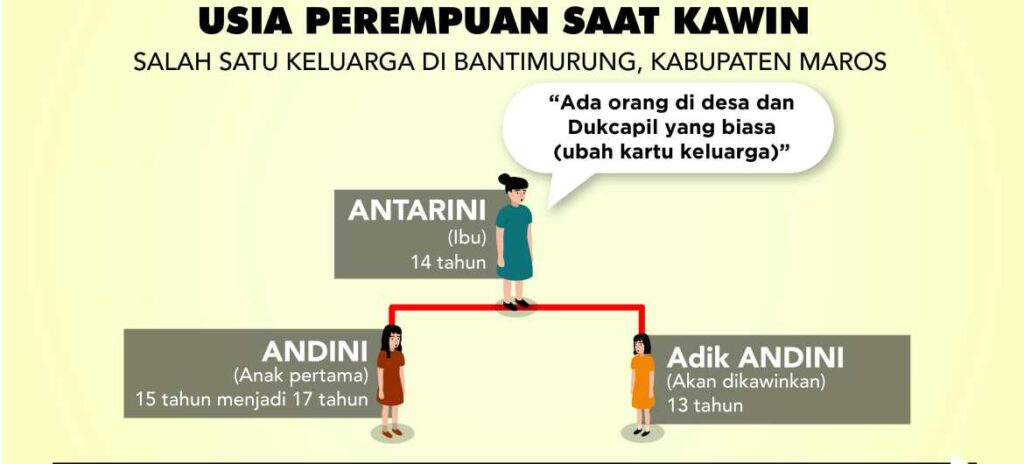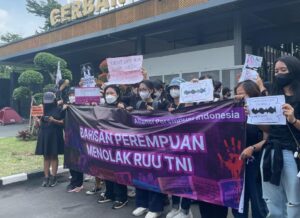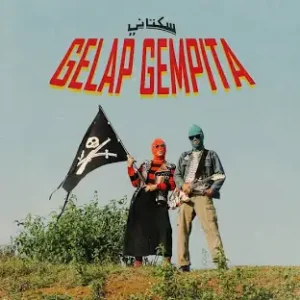
Communities living in remote areas are vulnerable to child marriages. Data from the Women’s Empowerment and Child Protection Agency of South Sulawesi indicate that such marriages have increased in number. In 2016 the percentage of women who were married under the age of 16 was 16.93 percent, increasing to 17.24 percent in 2017.
Andini (not her real name) was forced to marry at the age of 15. She could not do much about it when the family of a man she did not know came to her house in Bantimurung subdistrict, Maros regency, South Sulawesi to propose to her. “I could not reject the request of my parents,” said Andini (Thursday, 7 February 2019). Andini’s mother Antarini (also not her real name) said the family decided to marry off their child on the grounds that she was too lazy to go to school. Both Andini and Antarini refused to provide their real names because they feared stigma in the community. The man is said to have fallen in love with Andini when she brought coffee to him and his friends, mine workers who were all sweating, not far from the young girl’s residence. “The important thing is that the person is good, even if from far away, we accept that,” said Antarini, 34 years old. She herself also married as a teenager.
Andini (not her real name) was forced to marry at the age of 15. She could not do much about it when the family of a man she did not know came to her house in Bantimurung subdistrict, Maros regency, South Sulawesi to propose to her. “I could not reject the request of my parents,” said Andini (Thursday, 7 February 2019). Andini’s mother Antarini (also not her real name) said the family decided to marry off their child on the grounds that she was too lazy to go to school. Both Andini and Antarini refused to provide their real names because they feared stigma in the community. The man is said to have fallen in love with Andini when she brought coffee to him and his friends, mine workers who were all sweating, not far from the young girl’s residence. “The important thing is that the person is good, even if from far away, we accept that,” said Antarini, 34 years old. She herself also married as a teenager.

Early marriage is a common practice in South Sulawesi. Some residents even deliberately falsify their child’s age to obtain a marriage book from the local Office of Religious Affairs. Andini finally got married in September 2018. Her mother organised the marriage documents through the Office of Population and Civil Registration (Dukcapil), Maros regency, South Sulawesi.
Early marriage is a common practice in South Sulawesi. Some residents even deliberately falsify their child’s age to obtain a marriage book from the local Office of Religious Affairs. Andini finally got married in September 2018. Her mother organised the marriage documents through the Office of Population and Civil Registration (Dukcapil), Maros regency, South Sulawesi.
In the absence of a birth certificate, Andini’s age was easily manipulated. With just a family registration card and a letter from the village, the girl’s age was changed from 15 years to 17 years old. “I said ‘this is wrong sir, my child’s year of birth is incorrect’,” Antarini admitted. The officer had no choice but to follow Antarini’s request, “There is no proof of Andini’s birth date,” Antarini said with a laugh. Antarini was not charged for taking care of these arrangements herself, and even working through a broker the charge is only Rp50,000. Antarini admitted willingly lining up all day to change the data on her family registration card.
“There are indeed people in the village and Dukcapil who usually take care of this (changing the data on the family registration card),” Antarini said. She decided to change the data concerning her second child following encouragement by family members working at the local Office of Religious Affairs. She could not legally marry Andini if still under 16 years old. But thanks to the change in Andini’s date of birth on the family registration card, the Office of Religious Affairs could not refuse. Andini’s age in the marriage book is also stated to be 17 years. “I have an uncle who works in the Office of Religious Affairs, so he took care of raising Andini’s age in the marriage book, free of charge,” Antarini said.
A similar case also occurred in Tanete Riattang Timur subdistrict, Bone regency. Sarmila, who was married at the age of 15 years, was reported to be 18 years old when the licence was officially inaugurated by the village head in 2016.
Initially she didn’t know her age had been marked up. She just found out after reading her amended family registration card. “When I married I was given an age three years older than my actual age. I don’t know who took care of this. At that time, I just said I wanted to get married. I knew my prospective husband because we are from the same village,” said this elementary school graduate. “The uncle took care of it, we just accepted it,” added Sarmila’s mother, Nurlaila.
It’s not easy to change data
The Maros Head of Information Management, Civil Administration Office of Population and Civil Registration, Muhlisa, denied that changes in community data in the family registration card could be made so easily. “The birth certificate or latest diploma should have been attached. The party wishing to change the date of birth must provide evidence,” Muhlisa said.
“It’s not that easy to change data without basis. If the birth certificate is not available, the latest diploma must replace it,” Muhlisa said. Even if there are those who succeed in changing the year of birth of the children, Muhlisa said, we can be sure this violates the regulations. Muhlisa admitted that people often come to marry their young children. However, she stressed, the officer would reject the petition, because every prospective bride/groom must meet the minimum age requirements of at least 17 years. If not, then the marriage cannot be formalised at the government office. “If you are an underage child, we obviously cannot accommodate you,” she said.
Contacted separately, extension officer of the Office of Religious Affairs of the Chinese subdistrict, Bone regency, Andi Ilham, acknowledged that there were still individual employees who often became brokers managing marriage books. The trick is to falsify the child’s age. “Yes, there are often really badly behaved employees,” he said. The broker, Andi continued, appeared when the parents of the bride/groom were taking care of documents at the Population Office. The family is usually charged a maximum of Rp200,000 per prospective bride. “But it’s not part of the service, it’s just someone acting alone,” he said.
According to him, if children are married under the age of 16 years, then it violates the Law on Child Marriage “If they are underage, we will continue to make the marriage book and usually, the ages will be marked up,” he said. However, Ilham said, manipulation of the age of a child is now rather difficult because the system is online. The Office of Religious Affairs can only accept documents such as the resident identity card or family registration card from the Office of Population and Civil Registration.
Unless there is a letter of dispensation from the local Religious Court, an underage marriage must be rejected. “After dispensation, the documents are submitted to the Office of Religious Affairs to be made into a marriage book,” he said. “If there is no dispensation, we will not marry; the rules will be followed,” Ilham continued.
Contacted separately, Andi Kasmiati, head of Manurungnge, Tanete Riattang subdistrict, admitted that his office has always refused to provide cover notes for underage marriages. He usually directs the family to court to obtain a letter of dispensation. “If the child is underage I do not sign, then there will be a new dispensation and I will make an introduction to the Office of Religious Affairs,” Andi Kasmiati said.
Dispensation
Bone Religious Court also denied that it was easy to issue dispensation for early marriages. Junior Legal Registrar Jamaluddin Rahim admitted that the court often refuses to issue dispensation for prospective brides. Refusal usually arises if the prospective bride and groom are considered physically too immature to establish a household. “The Judge will refuse if the bride and groom do not meet the requirements, for example girls aged 13 years and boys 15 years,” said Jamaluddin, 25 January 2019.
The head of the Bantimurung Office of Religious Affairs, Syamsuddin Caco, emphasised that he was not averse to giving sanctions to disobedient employees, especially in clear cases of violation of the rule related to the forgery of documents given in Article 263, 264 or 266 of the Criminal Code. “But so far no one has dared to do that, they must be scared,” he said.
Document forgery through an employee of the Office of Religious Affairs, Syamsuddin said, is also very difficult. The reason is that a lot of supporting data is required to take care of marriage registration, such as photocopies of diplomas, family registration cards, and birth certificates.
Moreover, now the Office of Religious Affairs checks data in more detail. “We require a lot of data, so it cannot be engineered,” Syamsuddin said. Of course there are loopholes that can still be exploited. For instance, residents juggle the child’s data by changing their family registration card and reasoning that they do not have a diploma. That is what Antarini and Nurlaila did. “We don’t know,” Syamsuddin said when asked how such practices could still get through the system.
Corrupt Behaviour
Although denied by all government officials, in fact the practice of underage marriage continues to occur in South Sulawesi. Facts in the field showed that there are still ways to falsify the age of children who wish to be married.
The program manager of the Makassar Institute of Community Justice (ICJ), Husmirah Husain, admitted that it was very difficult to eradicate such violations. As long as the person who runs the system behaves in a corrupt way, she said, the age mark-up will continue. Although the process of managing resident identity cards is now online, it can still be manipulated. “Actually the problem is no longer system-related, but more about the people who run the system,” said Husmirah at her office in Makassar, Friday 8 February 2019.
To clarify, before the data arrive at the regency or city office, residents would have first handled it at the subdistrict office level, so the document could have been changed before entering the online process. “So corrupt practices remain because those who run the system are interfering,” Husmirah said.
Moreover, South Sulawesi communities still see child marriage only as a domestic matter, not a public issue. As a result, no matter how well the rule is implemented by the government, parents or family will still try to violate it. To make matters worse, there is in fact no clear punishment against violation of such rules.
In addition, Husmirah highlights the lack of agreement between the Marriage Law and Law no. 35/2017 on Child Protection. The Marriage Law permits women who are at least 16 years old to get married, but the Child Protection Law expressly states that marrying children under 18 years old is a violation. “So these regulations are contradictory and ambiguous in the community,” she added. Therefore, Husmirah encourages immediate revision of the Marriage Law to synchronise it with the Child Protection Law. “We also encourage sanctions to be given if child marriage occurs,” she said.
Numerous Factors
Nur Anti, Head of Fulfilment of Rights and Child Protection, Women’s Empowerment and Child Protection Agency of South Sulawesi, revealed that there are many factors involved in the occurrence of child marriage, especially related to women. Among them is the lack of access to education, lack of knowledge about health, lack of law enforcement, and poor service concerning access to birth certificates. “So it’s not entirely an economic factor,” Nur Anti said.
According to her, it takes collective work to prevent falsification of age and child marriage. “Yes, forgery of documents still happens but it has been reduced, it’s better than it used to be,” Nur Anti said. She sees child marriage still happening because of problems related to parenting. Children are receiving less love, attention, and protection. Because of that, the government encourages a better childcare program, by directly educating communities in rural areas.
Government also prioritises a program addressing community-based integrated child protection. The program involves village officials, Imam Masjid, cadres of Puskesmas, Babinsa, Babinkamtibmas, Religious Leaders, and child observer institutions. Although these programs are implemented intensively, it is still difficult to eradicate the incidence of child marriage from the South Sulawesi community. Early childhood marriage has been a tradition for generations.
As an example, Antarini was married at the age of 14, and now her child, Andini, is married at the age of 15. Furthermore, Antarini plans to immediately make arrangements for the marriage of her third child who is still 13 years old.
In Bone Regency the same is true, and girls living far from urban centres are vulnerable. Girls are not in a position to reject the orders of their parents to marry at a young age. “Here most people get married quickly. Marrying at a young age is considered a normal practice,” Sarmila said, gazing into the distance. Now she can only lament her predicament.








